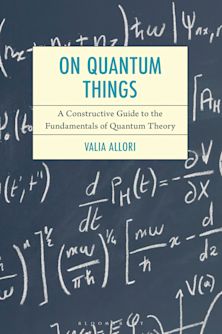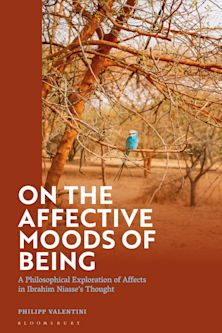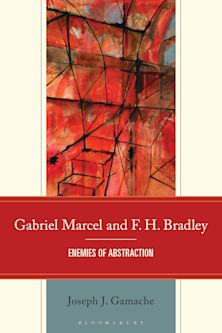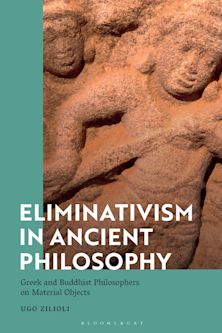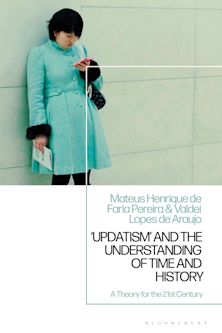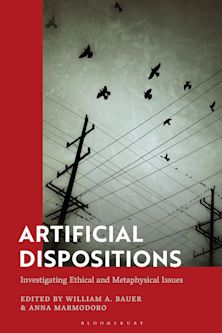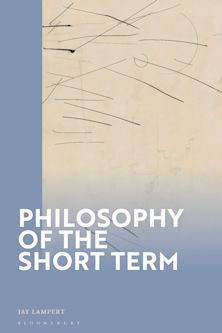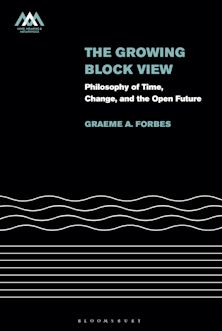- Home
- ACADEMIC
- Philosophy
- Metaphysics
- The Human World in the Physical Universe
The Human World in the Physical Universe
Consciousness, Free Will, and Evolution
The Human World in the Physical Universe
Consciousness, Free Will, and Evolution
This product is usually dispatched within 1 week
- Delivery and returns info
-
Free US delivery on orders $35 or over
You must sign in to add this item to your wishlist. Please sign in or create an account
Description
How is it possible for the world as we experience it to exist embedded in the physical universe? How can there be sensory qualities, consciousness, freedom, science and art, friendship, love, justice-all that which gives meaning and value to life-if the world really is more or less as modern science tells us it is? This is the problem that is tackled by this book.
The solution proposed is that physics describes only a selected aspect of all that exists-that aspect which determines the way events unfold. Sensory qualities, inner experiences, consciousness, meaning and value, all these exist but lie beyond the scope of physics, and of that part of science that can be reduced to physics. Furthermore, these human features of the world are to be explained and understood, not scientifically, but "personalistically," a kind of understanding distinct from, and not reducible to, science. This view that the world is riddled with what may be called "double comprehensibility" leads to a proposed solution to the philosophical mind/body problem, and to the problem of free will; it leads to a reinterpretation of Darwin's theory of evolution, and to an account of the evolution of consciousness and free will. After a discussion of the location of consciousness in the brain, the book concludes with a proposal as to how academic inquiry might be changed so that it becomes a kind of inquiry rationally designed to help humanity create a more civilized human world in the physical universe.
Table of Contents
Chapter 2 The Human World/Physical Universe Problem
Chapter 3 The Human World: What Is of Value?
Chapter 4 The Physical Universe: Is It Comprehensible?
Chapter 5 Diverse Attempts at Solving the Problem
Chapter 6 The Physical and the Experiential
Chapter 7 Free Will
Chapter 8 Evolution
Chapter 9 Consciousness
Chapter 10 Civilization in the Physical Universe
Chapter 11 Appendix 1: Love, Time, Comprehensibility, and Abstract Entities
Chapter 12 Appendix 2: Contingent Identity with Rigid Designators: Refutation of Kripke
Chapter 13 Appendix 3: From Standard to Aim-Oriented Empiricism
Chapter 14 References
Chapter 15 Index
Product details
| Published | Sep 24 2001 |
|---|---|
| Format | Hardback |
| Edition | 1st |
| Extent | 352 |
| ISBN | 9780742512269 |
| Imprint | Rowman & Littlefield Publishers |
| Dimensions | 9 x 6 inches |
| Series | Philosophy and the Global Context |
| Publisher | Bloomsbury Publishing |
About the contributors
Reviews
-
A solid work of original thinking.
Choice Reviews
-
Maxwell has not only succeeded in bringing together the various different subjects that make up the human world/physical universe problem in a single volume, he has done so in a comprehensive, lucid and above all readable way.
Trends In Cognitive Sciences
-
...a bald summary of this interesting and passionately·argued book does insufficient justice to the subtlety of many of the detailed arguments it contains.
Mind: A Quarterly Review of Philosophy
-
The Human World in the Physical Universe provides the best entrance to Maxwell's world of thought. This book contains a succint but certainly not too-detailed overview of the various problems and positions in the currently flourishing philosophy of mind. It shows that despite the fact that many philosophers have declared Carteisan Dualism dead time and again, with some adjustments, the Cartesian view remains powerful and can compete effortlessly with other extant views.
Studies In History and Philosophy Of Modern Physics
-
Ambitious and carefully-argued. . . . I strongly recommend this book. It presents a version of compatibilism that attempts to do real justice to commonsense ideas of free will, value, and meaning, and deals with many aspects of the most fundamental problems of existence.
Journal of Consciousness Studies













